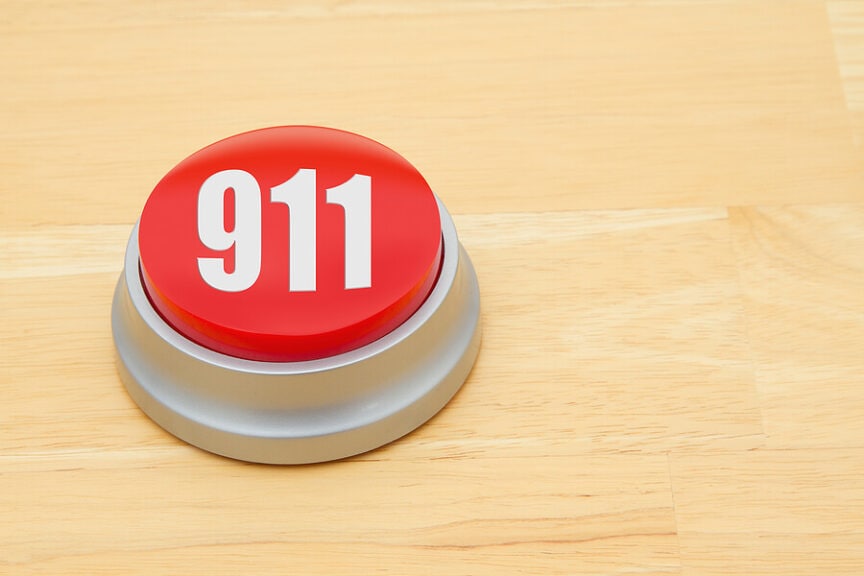Emergencies can strike unexpectedly, disrupting daily routines and requiring immediate action to ensure your safety. For individuals with hearing loss who rely on hearing aids, proper preparation is essential to navigate emergency situations. Here are some practical strategies for preparing for emergencies with hearing aids, including protecting your hearing aids, ensuring communication accessibility, and prioritizing personal safety in times of crisis.
Understanding the Importance of Preparedness
Emergencies come in various forms, from natural disasters like hurricanes and earthquakes to unforeseen events such as fires, power outages, or medical emergencies. In any emergency scenario, communication is extremely important. This can include access to vital information and the ability to hear warning signals or directions.
For individuals with hearing loss who rely on hearing aids, disruptions to their hearing devices can significantly impact their ability to communicate, navigate their surroundings, and receive important alerts or instructions. That’s why preparation is the key to mitigating potential challenges and maintaining hearing abilities during emergencies.
Practical Strategies for Emergency Preparedness with Hearing Aids
Here’s how you can prepare for emergencies:
- Maintain a Backup Power Supply: In the event of a power outage, having a backup power supply for your hearing aids is essential. Consider investing in rechargeable hearing aids with spare batteries or portable charging options to ensure uninterrupted use during emergencies.
- Protect Your Hearing Aids: Store your hearing aids in a secure, waterproof container or case to shield them from water damage, dust, debris, and other environmental hazards. Keep spare supplies, such as cleaning tools, replacement domes, or tubing, in your emergency kit for quick access.
- Stay Informed: Sign up for emergency alerts and notifications from local authorities or emergency management agencies. You can get alerts through text messages or email.
- Establish Communication Plans: Develop communication plans with family members, caregivers, or neighbors to ensure effective communication during emergencies. Determine alternative communication methods, such as written notes or text-based communication apps to facilitate communication if hearing aids are unavailable or damaged.
- Practice Emergency Drills: Conduct regular emergency drills to familiarize yourself with evacuation procedures, emergency shelters, and communication protocols. Practice removing and securing your hearing aids quickly and efficiently to ensure readiness in high-stress situations.
- Carry Identification and Medical Information: It’s a good idea to carry an identification card indicating your hearing impairment and any relevant medical information, including emergency contact numbers, allergies, or medical conditions. This information can help first responders and healthcare professionals provide appropriate assistance during emergencies.
- Stay Connected: Maintain a network of support with friends, family, or community organizations that can offer assistance and support during emergencies. Share your emergency preparedness plans with trusted contacts and ensure they are aware of your specific communication needs and preferences.
Emergency Situations: Tips for Specific Scenarios
Here are some tips for specific emergencies:
- Natural Disasters: In the event of a natural disaster, such as a hurricane or earthquake, follow evacuation orders from local authorities and seek shelter in designated safe zones. Keep your emergency kit, including spare batteries and communication devices, readily accessible.
- Fires: In the event of a fire, evacuate immediately and follow fire safety protocols. If time permits, retrieve your emergency kit and ensure your hearing aids are securely stored or worn. Use visual cues or written communication to communicate with others if hearing aids are not available.
- Medical Emergencies: During medical emergencies, communicate your hearing impairment to healthcare providers and emergency responders. Carry a written list of medications, allergies, and medical history to ensure appropriate treatment and care.
Stay Prepared
Preparing for emergencies with hearing aids requires proactive planning to ensure safety, accessibility, and peace of mind. By following these practical strategies, you can navigate emergency situations with confidence.
Remember, preparedness is a continuous process that evolves over time. Regularly review and update your emergency plans, communication strategies, and supply kits to maintain readiness.
Schedule a Hearing Aid Checkup
If you have concerns about the condition or functionality of your hearing aids, schedule a checkup with your hearing health specialist. We offer ongoing maintenance, repairs, or adjustments. Regular professional care is the best way to have optimal performance and reliability. Don’t wait until an emergency strikes—take proactive steps to protect your hearing health today.

